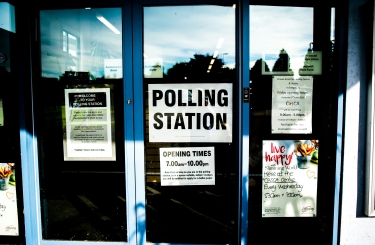Related


A week ago, the 2024 General Election results revealed a new Labour Government. It is a government that has been elected into power under promises of change; of restoring hope and of turning the page on 14 years of austerity.
The new ministers have a lot on their to-do list. Promises are one thing – especially those made on the campaign trail when you are looking to appeal to the broader public and potential vote-switchers in particular. However now that this government has been elected, we feel it is important to look beyond the slogans and soundbites, to consider what civil society is asking of this new government and how these fit within Labour’s promises.
Looking at an array of manifestos and campaign asks from civil society organisations, we have picked out some key themes in what is being asked of Starmer’s government.
There seems to be a consensus among civil society organisations that further devolution within the UK, and in London, should be a priority for the new government. Indeed, with Labour holding 11 of the 12 Metro and District Mayoral positions in the UK after May’s local elections, further devolution seems highly likely.
Business LDN suggest greater devolution will incentivise local leaders to invest their resources more effectively which in turn will support growth and increase accountability, with Centre for London also calling for property taxes to be devolved to London. New Local’s beliefs on establishing a new local-central dynamic through place based public service budgets, which identifies all public money spent within a local area and enables it to be used more flexibly and more closely aligned with communities and places. New Local outlines how establishing this is key to enabling the new government to create local authorities with a stronger place-shaping role and more deeply involved communities within devolution at a neighbourhood level.
London looks set to benefit from more devolution of powers to other metro mayoral areas too, as this has the potential to take the pressure off the Greater London area; providing alternative centres for urban population growth and easing the city’s housing and public services demands.
Building ‘strong and resilient communities’, as summarised by NCVO, is a key theme amongst civil society manifestos. Local Trust mentions how the expansion of the Community Wealth Fund and the creation of a new Neighbourhoods Unit will especially help transform disadvantaged communities. As mentioned earlier, New Local’s work around Place Based Budgets, as a route to change how public funding is distributed to local areas, is argued to better align investment with population needs.
Justice and representation of communities experiencing structural inequality were common themes throughout civil society manifestos. Trust for London emphasised the role that social justice (mainly racial, disability and poverty affected women) needs to play in the new government’s priorities. NPC also highlighted the importance of proportionally representing marginalised groups in policy making.
Health Equals have highlighted the importance of the ‘building blocks of health’ (job and pay stability, clean air & green spaces and affordable, quality homes). NPC backs this by calling for vital high-quality green and blue spaces. The Health Foundation believe the new government should focus on strengthening capacity and resilience in the NHS. Looking towards mental health, Children & Young People’s Mental Health Coalition (CYPMHC) have called for reform of the Mental Health Act 1983 and an embedded educational approach to mental health and wellbeing in schools.
Several funders and civil society groups are united in calling for the end of the two-child benefit cap, which the CEO of Barnardo’s claimed would immediately lift 300,000 children out of poverty. Furthermore, Trussel Trust and Joseph Rowntree Foundation have called on the government to adopt an ‘Essentials Guarantee’ which would see the basic rate of Universal Credit covering the costs of essentials like food, household bills and travel costs, at a minimum.
London has been the epicentre of the housing crisis for some time, with over 300,000 households in the capital on the waiting list for social housing. Trussel Trust and Shelter state that there needs to be an increase of 90,000 new homes a year in England. Increasing the number and accessibility of affordable housing has also been deemed a priority by others in civil society. Generation rent, Shelter, Homes for All and NPC all suggest these need be high-quality houses that are energy efficient, affordable, and contribute to minimising carbon emissions.
NCVO have published actions they think the new government should prioritise for the charity sector. These include valuing volunteers through backing key volunteering campaigns and making volunteering more accessible through paid leave, as well as allowing those claiming benefits to volunteer. NCVO also ask for the new government to make public giving easier, supporting the charity sector through tax system improvements and engaging charities in the policy making process.
The new government has been called to support organisations’ transition to net-zero through frameworks and incentives (Business LDN). NPC, along with 33 charities, is also asking the government to commit to ensuring the equitable distribution of benefits and costs of environmental policies, including subsidising the costs of environmental policies for disadvantaged groups.
Living Wage Foundation found that insecure work can be tackled by the government through a Living Hours standard, an accreditation scheme managed by the Living Wage Foundation which includes guaranteed minimum 16 hours a week, four weeks’ notice for shifts and the right to a contract that reflects the actual hours worked.
In their report on youth unemployment, London Councils shared their recommendations for the government to target employability and skills within London. They suggest that DWP should collaborate with local partners on Jobcentre Youth Hubs and make its local District Provision Tool available to London partners so they may input any additional youth employment, education, and training opportunities available to young people in London. They also propose that London Councils, the GLA and other key London partners should lobby government for improved conditions for Skills funding.
There has also been a focus on improving skills in efforts to ‘future-proof the capital’s labour market’, as said by Business LDN. Centre for London identified vocational education and skills as London’s weakest area, something which Business LDN suggests reforming of the Apprenticeship Levy can tackle. To further this, Centre for London emphasises the importance of attracting workers from across the UK and the world to increase London’s productivity. Training workers in green skills is also a common theme here - NPC has called for accessible green jobs and skills programmes, as well as Centre for London.
Some of the asks of civil society are reflected in the Labour party’s 2024 manifesto. Labour have promised that they will bring ‘good jobs, apprenticeships and productivity growth’ to the UK. They have also promised to reform childcare and education systems in attempts to break down barriers to opportunities. Additionally, Labour plan to reinstate compulsory housebuilding targets for local councils, as part of their plan to build 1.5 million new homes within five years.
Further devolution in England is also a central pillar of the Labour Party’s growth strategy. Labour plans on doing this through strengthening the role of metro mayors and enhancing their economic powers. Here, there is potential that London may get the further devolved powers civil society has been asking for.
There are gaps between what civil society is asking and what the government are planning to deliver, such as the two-child benefit cap and perhaps the quality and affordability of newly built housing. But as we expressed last week, change happens and always has regardless of who is in power, in every neighbourhood, in communities bound by shared experience, and under many different guises. There is no shortage of the ways Londoners are mobilising to take direct action in their communities and we look forward to working with funders, local and central government, civil society, and communities in the years ahead for a fairer, safer, and greener London.
Lucy is an intern at London Funders and is currently studying Politics and International Relations at the University of Birmingham.

